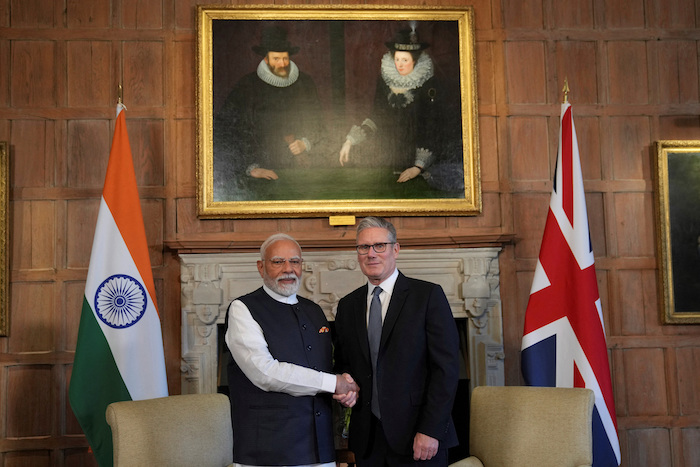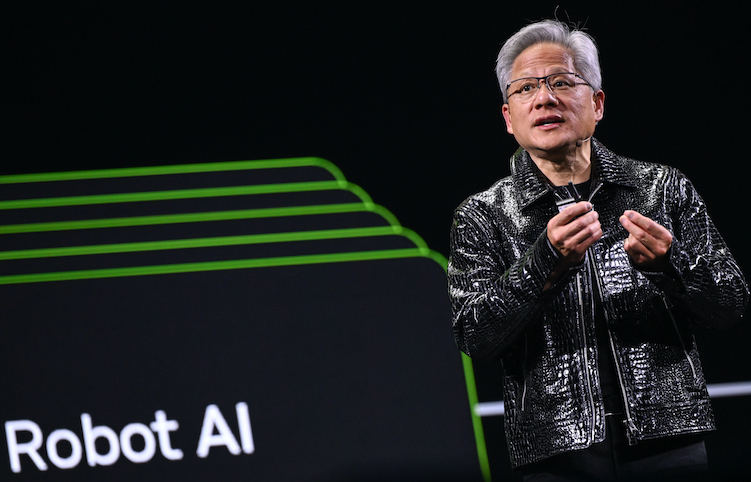British Prime Minister Keir Starmer flew into India on Wednesday – with more than 100 leaders from the business, culture and university sectors – to urge implementation of a bilateral trade deal as soon as “humanly possible.”
Britain and India signed a free-trade agreement in July during a visit by Indian Prime Minister Narendra Modi, sealing a deal to cut tariffs on goods from textiles to whisky and cars, and allow more market access for businesses.
Talks on the trade pact were concluded in May after three years of stop-start negotiations, with both sides hastening efforts to clinch a deal in the shadow of tariff turmoil unleashed by US President Donald Trump.
ALSO SEE: Underwater Drone Deal as Australia Ramps up Maritime Defences
The deal between the world’s fifth- and sixth-largest economies aims to increase bilateral trade by a further 25.5 billion pounds ($34 billion) by 2040.
But the government has said that the projections were a floor, not a ceiling, to the ambition of the deal, and the visit with executives from the likes of oil major BP, engine maker Rolls-Royce, telecom firm BT, was aimed at maximising Britain’s biggest post-Brexit trade deal.
“It provides huge opportunities,” Starmer told the delegates of the trade mission on arrival in Mumbai, adding he had asked his team to implement the deal as “quickly as humanly possible.”
“I think the opportunities are already opening up… Our job is to make it easier for you to seize the opportunities.”
Starmer will hold bilateral talks with Modi on Thursday. Both sides have said they are looking to ratify the deal and bring it into effect within the next year.
Growth is one of Starmer’s key priorities as he tries to reverse his Labour party’s slide in the polls, with a November fiscal budget expected to show a tricky fiscal picture.
Shevaun Haviland, director-general of the British Chambers of Commerce business group, said that Starmer should avoid taxing businesses again at the budget, but also drive growth through building ties with countries like India and the Gulf, where trade talks are ongoing.
“We’ve got partners all over the world, and that should be our role,” she told reporters, adding that Britain could seek free-trade deals while also dealing with fallout from a global trade war and negotiating to lower US tariffs.
“I think that the government is big enough to do both,” she said.
- Reuters with additional editing by Jim Pollard
ALSO SEE:
India Plans Countrywide Climate Insurance Amid $180bn Losses
China bought $40bn advanced chip tools despite curbs: US lawmakers
Eli Lilly Plans $1bn+ Boost of Manufacturing Capacity in India
India Agrees to Restart Issuing Tourist Visas to Chinese Citizens
Trump’s Dealings With Pakistan Has India Slowing Tariff Talks
New Tax Cuts To Accelerate India’s Shift To Solar, Wind Energy
India Renewable Power Output Jumps, Coal Use Falls in First Half
Extreme Sudden Rainfall Kills Hundreds in Pakistan and India
Firms Underestimating Risks From Carbon-Fuelled Climate Change
Study Says Biochar Can Solve Asia’s Fertiliser Shortages
Solar Power Boom Surging in Indonesia, Australia, Africa
























